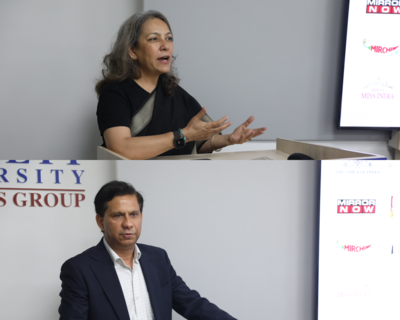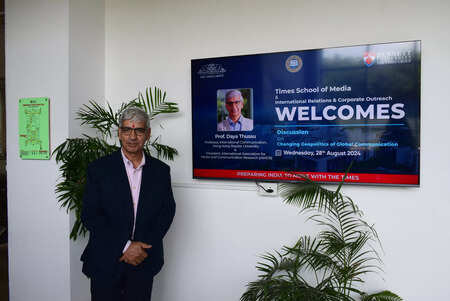Bennett University and Max Healthcare Join Forces to Launch Pioneering PG Diploma AI in Healthcare
Times of Bennett | Updated: Aug 08, 2025 14:25

The program launching in September 2025 is a 1-year hybrid program built to empower healthcare, life sciences, and tech professionals to lead in the AI-driven future of medicine. The PG diploma program opens doors to various roles, including
The MoU was formally signed in the presence of senior leadership from Max Healthcare, Dr. Sandeep Budhiraja, Group Medical Director, Max Healthcare, and Dr. Vinitaa Malhotra Jha, Director, Academics & Research, Max Healthcare. Their presence at the signing underscored Max Healthcare’s strong commitment to integrating academic innovation with clinical excellence.
This industry-aligned program offers dual mentorship, academic and clinical training guaranteed at Max Healthcare hospitals, offering exposure to real-world clinical workflows, hospital AI systems, and patient data. The year-long, hybrid course covers AI-based medical imaging, predictive diagnostics, health data analytics, and much more.
The PG diploma program is backed by the distinguished faculty at Bennett University, with state-of-the-art infrastructure labs and clinical expertise from Max Healthcare. The program welcomes science graduates (B.Sc., B. Tech, B. Pharma) and working healthcare professionals (doctors, nurses, pharmacists, radiographers, allied health professionals, hospital administrators, and clinical researchers) who want today's best training in AI-assisted care.
Carefully balanced between lectures and hands-on work, the program devotes the first 6 months to academics and the next 6 months to experiential learning/project work, making sure students can turn concepts into tools they use every day in hospitals or labs. To reinforce that real-world focus, the package includes On-Campus Immersions, hospital-based visits, panel talks with field experts, and a capstone project that mimics live healthcare situations. The PG Diploma in AI in Healthcare offers aspiring professionals a thoughtfully assembled mix of theory and hands-on work, designed with busy health environments in mind.
In this program, students will learn to investigate, visualize, and understand patterns in data; understand, diagnose, and improve clinical applications of machine learning; and leverage data to optimize disease screening and clinical decision making. They will develop a capacity to critically examine the implications of AI for patient safety, quality care, and medical research. The following curriculum aims to support learners in making meaningful linkages between AI and their breadth of practice, the science, and business of healthcare. Thus, participants will be ready to be a part of innovation, new technologies, and shape intelligent healthcare. As health care transitions toward precision and predictive medicine, this program occupies the nexus of technology and medicine and positions professionals to direct this revolution.











